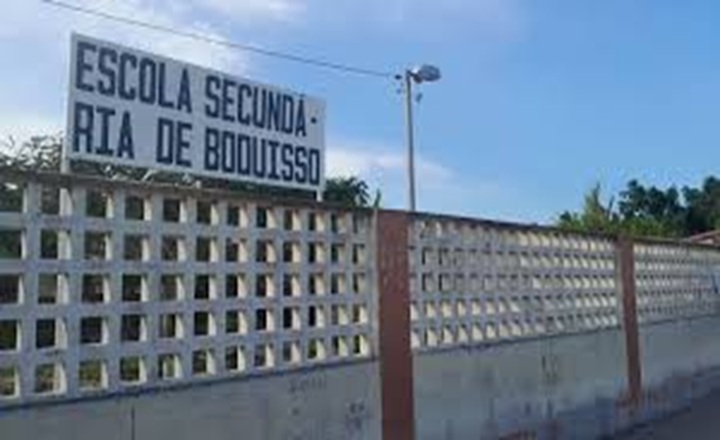
Yellow Card to RENAMO: Silence that Betrays Democracy
.jpg)
Signed in Rome on 4 October 1992, the General Peace Agreements officially marked the end of one of the longest and bloodiest civil wars in Africa. The ceasefire between FRELIMO and RENAMO was celebrated as the beginning of a new era for Mozambique, an era of peace, reconciliation and democratic openness. But the peace that was outlined in the pages of the agreements did not always find firm roots in the institutions that were supposed to sustain it. The country moved towards democracy, but often confused it with simply silencing the weapons. And this misunderstanding lies a fundamental part of the crisis we are experiencing today.
Since then, political upheavals, electoral crises and power struggles have continued to be resolved not by the force of institutional dialogue, but by the veiled (or explicit) threat of a return to arms. For decades, Mozambique has lived in a fragile balance between formal democracy and a culture of imposition, where institutions – rather than neutral arbiters – have functioned as extensions of the party in power. In a scenario where the separation of powers is illusory and state institutions serve the maintenance of the regime rather than the service of the people, it is difficult to expect democracy to flourish.
In this distorted context, RENAMO, as the largest opposition force since the 1990s, played a fundamental, albeit controversial, role. Under the charismatic and belligerent leadership of Afonso Dhlakama, the party embodied a peculiar duality: while participating in elections and political processes, it maintained a posture of constant armed vigilance. For many, Dhlakama was the symbol of stubborn but necessary resistance to the arrogance of FRELIMO, which transformed governance into an exercise in state appropriation.
Therefore, Dhlakama’s death in 2018 represented more than the loss of a leader; it represented an era of great challenges, as it was not easy to erase the image of Renamo as a group of bloodthirsty murderers, a feat that Dhlakama managed masterfully, transforming it from a warmongering movement based in the forests into a political force with bases in all substrata, making true opposition to the regime of the day. It was the death of an era, and the opening of a strategic void that the current Renamo leadership has never been able to fill. Under the leadership of Ossufo Momade, Renamo lost not only its voice, but its soul. It abandoned the people, remained silent in the face of injustice, and became hostage to an internal logic of political survival that exchanged ideals for convenience.
It is at this moment that this editorial stands as a cry of warning: Renamo deserves, without a shadow of a doubt, a yellow card. A solemn, serious and necessary warning.
The party, once seen as the greatest counterweight to Frelimo's political hegemony, is now captured by a group of leaders whose main interest seems to be maintaining positions of power and access to resources, even if this means destroying the organisation itself. Under this leadership, Renamo has become an inoperative machine, alienated from its base and incapable of offering any alternative project for the country. A party that no longer presents itself as a hope, but as part of the problem.
The choice of Ladislau Dança Mafuta to lead the party, after the dismissal of Ossufo Momade, was one of the biggest mistakes made by Renamo’s Political Commission. Mafuta proved to be a fragile leader, with no discursive or strategic skills, a poor communicator, and politically disoriented. His rise to power is the clearest reflection of Renamo’s internal decline: at a time when the party needed a beacon, they handed it an unlit candle.
More than incompetent, this leadership was an accomplice of Frelimo in the destruction of the democratic fabric of the country. While the population was crying out for justice, transparency in the elections, a political voice and real alternatives, Renamo chose to remain silent, negotiate crumbs and shield its own cadres. When they were not absent, they were on the wrong side of history.
The aggressiveness with which they fight figures like Venâncio Mondlane is revealing. Mondlane represents everything that the current Renamo fears: charisma, courage, ability to mobilize and, above all, popular legitimacy. In a country where the young and urban electorate is increasingly attentive, the emergence of leaders like Venâncio Mondlane could have been a golden opportunity for the party to reinvent itself. But instead, the leaders preferred to eliminate him as an internal threat. They chose to preserve their privileges over the national interest. In the short term, they avoided losing control of the party. In the long term, they condemned it to collapse.
The demonstrations that have broken out in several provinces against the Renamo presidency are more than just signs of wear and tear. They are the stifled cry of a population that once believed, that surrendered to the idea that democracy could be built with pluralism, with a balance of forces, with alternation of power. Today, what we see is a country surrendered to a regime that disregards institutions and an opposition that has given up the fight.
The political death of Renamo is not a mere electoral loss. It is the symbolic disappearance of a key piece in the Mozambican democratic chessboard. Without it, Frelimo advances freely, without restraint, without fear. Democracy, which was already limping, now runs the risk of total paralysis. The arrogance with which Frelimo behaves in each electoral cycle, manipulating results, repressing protests, and using the courts as a tool, is reinforced by the absence of a robust, legitimate and coherent opposition.
In this scenario, Mozambican democracy seems doomed to systematic failure. The Rome Peace Accords, which were supposed to usher in a new order based on dialogue, pluralism and mutual respect, have been gradually undermined by institutional imbalance and partisan capture of the state. The systematic use of violence as a tool for political negotiation has revealed that the peace agreement was not sufficiently accompanied by a profound reform of the system. We continue to live in a country where institutions are fragile and partisan, where the will of the people is manipulated and where fear replaces the rule of law.
For all these reasons, this yellow card is more than a symbolic gesture. It is a denunciation. A call for deep reflection. A request for Mozambicans to rethink the direction of the country, to seek a new opposition and a more serious and coherent party system, a new form of political organization, free from the legacy of war, but firm in democratic principles. The Mozambican people deserve more than a choice between authoritarianism and mediocrity.
Renamo can still avoid a red card. But to do so, it needs to silence the internal cries, especially from those who gave their youth to fighting for the liberalization of the country, whose reward is slow to arrive. Renamo needs to return to its foundations, return power to the people and rebuild itself with courage, humility and vision.
Outras noticias

Society
19-year-old woman arrested for kidnapping newborns at Chókwe Rural Hospital
2026-01-08

Society
Tension in Salamanga: Conflict between the Community and Rangers of the Maputo Reserve
2026-01-08

policy
YELLOW CARD NO. 1 OF THE YEAR: BETWEEN PROMISES, POPULISM AND THE URGENCY OF NATIONAL PRIORITIES
2026-01-08

policy
YELLOW CARD FOR THE FIRST PRESIDENTIAL REPORT: NARRATIVE ARROGANCE, SYSTEMIC CONTINUITY, AND THE WASTE OF A FIRST YEAR OF HOPE
2025-12-25

Society
Intaka-Boquisso road floods after inauguration, leaving residents outraged
2025-12-25
Copyright Jornal Preto e Branco All rights reserved . 2025